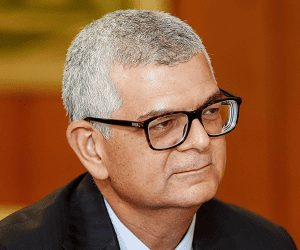New CEO tries to bring stability to troubled company.

Ivan Monteiro, Petrobas CEO |
At his office in downtown Rio de Janeiro, Ivan Monteiro is avoiding public and media engagement while nursing along the recovery of credibility at Petrobras, the state-controlled Brazilian oil giant he took over as interim CEO in early June. His task is not easy. Monteiro is looking to continue his predecessor’s efforts to restore financial sustainability to Petrobras while it weathers demands for a new wave of fuel subsidies. Plenty of political obstacles stand in his way.
Monteiro’s success is pivotal not just to Petrobras, which was mired in debt along with charges of corruption and mismanagement, but to a battered Brazilian corporate sector eager to restore its standing with global investors. He succeeds Pedro Parente, a longtime government minister and corporate executive who was appointed CEO by new President Michel Temer two years ago. A huge truckers’ strike in May demolished Parente’s policy of daily adjustment in fuel prices and forced his resignation.
Monteiro, as CFO, was Parente’s right hand; in December, he led the initial public offering of Petrobras Distribuidora, Brazil’s biggest IPO since 2013.
Parente’s resignation sparked an immediate 22% fall in the price of Petrobras shares, the worst the company had suffered in nearly 20 years. Temer’s nomination of Monteiro, coupled with the president’s reaffirmation of commitment to the financial recovery of Petrobras, helped to stabilize the price at around $10 per share.
“We will keep the economic policy that, during the last two years, has removed the company’s losses and brought it back among the group of most respected companies in Brazil and abroad,” said Temer. “There won’t be any interference in the company’s price policies. And Ivan Monteiro has the assurance that this will not change.”
The question of new fuel subsidies remains, however. Temer promised to relax price adjustments as part of a deal to end the truckers’ strike. Yet, after subsidies adopted by the prior administration helped Petrobras accumulate a $15 billion loss and its current $89 billion in liquid debt, shareholders don’t want to add a new burden. Petrobras’s plan to sell $4.3 billion in assets by the end of the year and its $74.5 billion investment plan for 2018-22 are also now in doubt.



